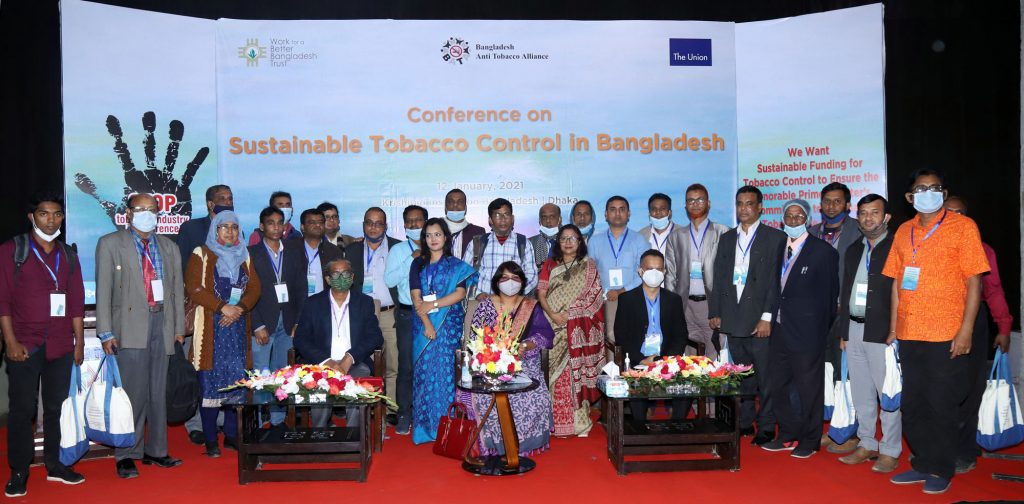News

On 12 January 2021, Work for a Better Bangladesh Trust jointly with Bangladesh Anti-Tobacco Alliance (BATA), organized a Conference on sustainable Tobacco Control in Bangladesh with the support of The Union. Government and non-government officials, representatives from international organizations, environmentalists, public health experts, agriculturists, media representatives, and anti-tobacco activists from across the country took part in the conference.
This conference’s primary objectives were to raise the voice for sustainable tobacco control funding and amendment of tobacco control law for achieving the goal of smoke-free Bangladesh by 2040. A number of articles were presented in four sessions on the financing and amendment of the existing TC Law and its implementation, increase of taxes on tobacco products, control of tobacco cultivation, and protection of public health policies from tobacco industry interference at the conference.
Many distinguished government representatives including, Kazi Jebunnesa Begum, Additional Secretary (World Health Division) of the MoHFW, Mozaffar Hossain Paltu, President of National Tuberculosis Prevention Association, Brigadier (Retd.) Abdul Malek, Founding President of National Heart Foundation of Bangladesh, Specialist Doctor Prof. Pran Gopal Dutta, Prof. Dr. AAMS Arefin Siddique, Chairman of Bangladesh Sangbad Sangstha and former Vice-Chancellor of University of Dhaka, Barrister Shameem Haider Patwari, Member of Parliament, Bangladesh, Abu Naser Khan, Chairman of Paribesh Bachao Andolan (POBA), S.M Golam Kibria, Director-General of Department of Films and Publications (DFP), Md. Zillur Rahman Chowdhury, Joint Secretary and Coordinator of National Tobacco Control Cell, Saifuddin Ahmed, Coordinator of Bangladesh Anti-Tobacco Alliance spoke at the conference among others. More than 150 representatives from 120 organizations across the country participated in the conference.
The Additional Secretary of MoHFW assured the participants of continuing work for sustainable funding for tobacco control and tobacco control law amendment. She shared the progress on MoHFW’s ongoing work to develop the National Tobacco Control Program and NTCC rules and organogram. She also shared the MoHFW’s plan to involve civil society organizations in the implementation of the revenue-funded project.
Another highlighted issue at the conference was the signing and adoption of a code of conduct according to WHO’s FCTC 5.3 by 100+ participating NGOs who are involved with Bangladesh Anti-Tobacco Alliance. In writing, they committed that they will not collaborate with and will not take any donation or sponsorship from the tobacco industry.
